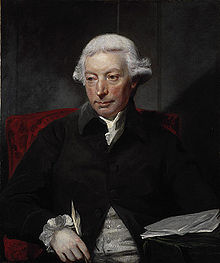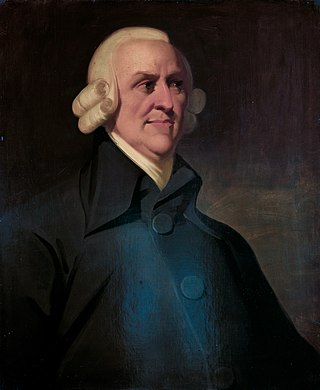
Adam Smith was a Scottish economist and philosopher who was a pioneer in the thinking of political economy and key figure during the Scottish Enlightenment. Seen by some as "The Father of Economics" or "The Father of Capitalism", he wrote two classic works, The Theory of Moral Sentiments (1759) and An Inquiry into the Nature and Causes of the Wealth of Nations (1776). The latter, often abbreviated as The Wealth of Nations, is considered his magnum opus and the first modern work that treats economics as a comprehensive system and as an academic discipline. Smith refuses to explain the distribution of wealth and power in terms of God's will and instead appeals to natural, political, social, economic, legal, environmental and technological factors and the interactions among them. Among other economic theories, the work introduced Smith's idea of absolute advantage.

David Hume was a Scottish philosopher, historian, economist, and essayist who was best known for his highly influential system of empiricism, philosophical scepticism and metaphysical naturalism. Beginning with A Treatise of Human Nature (1739–40), Hume strove to create a naturalistic science of man that examined the psychological basis of human nature. Hume followed John Locke in rejecting the existence of innate ideas, concluding that all human knowledge derives solely from experience. This places him with Francis Bacon, Thomas Hobbes, John Locke, and George Berkeley as an empiricist.

Henry Home, Lord Kames was a Scottish writer, philosopher and judge who played a major role in Scotland's Agricultural Revolution. A central figure of the Scottish Enlightenment, he was a founding member of the Philosophical Society of Edinburgh and active in The Select Society. Home acted as patron to some of the most influential thinkers of the Scottish Enlightenment, including philosopher David Hume, economist Adam Smith, writer James Boswell, philosopher William Cullen and naturalist John Walker.

The Scottish Enlightenment was the period in 18th- and early-19th-century Scotland characterised by an outpouring of intellectual and scientific accomplishments. By the eighteenth century, Scotland had a network of parish schools in the Scottish Lowlands and five universities. The Enlightenment culture was based on close readings of new books, and intense discussions which took place daily at such intellectual gathering places in Edinburgh as The Select Society and, later, The Poker Club, as well as within Scotland's ancient universities.
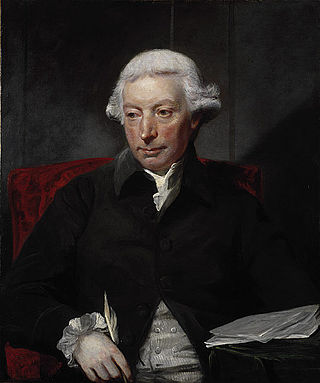
Adam Ferguson,, also known as Ferguson of Raith, was a Scottish philosopher and historian of the Scottish Enlightenment.

John Playfair FRSE, FRS was a Church of Scotland minister, remembered as a scientist and mathematician, and a professor of natural philosophy at the University of Edinburgh. He is best known for his book Illustrations of the Huttonian Theory of the Earth (1802), which summarised the work of James Hutton. It was through this book that Hutton's principle of uniformitarianism, later taken up by Charles Lyell, first reached a wide audience. Playfair's textbook Elements of Geometry made a brief expression of Euclid's parallel postulate known now as Playfair's axiom.
This article presents lists of the literary events and publications in 1767.
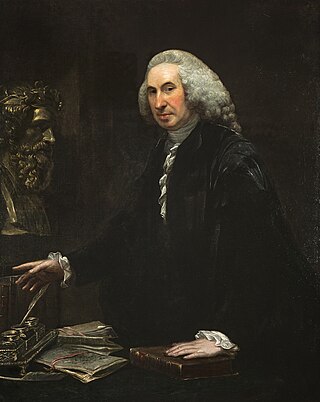
William Cullen was a Scottish physician, chemist and agriculturalist, and professor at the Edinburgh Medical School. Cullen was a central figure in the Scottish Enlightenment: He was David Hume's physician, and was friends with Joseph Black, Henry Home, Adam Ferguson, John Millar, and Adam Smith, among others.

James Thomson was a Scottish poet and playwright, known for his poems The Seasons and The Castle of Indolence, and for the lyrics of "Rule, Britannia!"

"Life, Liberty and the pursuit of Happiness" is a well-known phrase from the United States Declaration of Independence. The phrase gives three examples of the unalienable rights which the Declaration says have been given to all humans by their Creator, and which governments are created to protect. Like the other principles in the Declaration of Independence, this phrase is not legally binding, but has been widely referenced and seen as an inspiration for the basis of government.
Spontaneous order, also named self-organization in the hard sciences, is the spontaneous emergence of order out of seeming chaos. The term "self-organization" is more often used for physical changes and biological processes, while "spontaneous order" is typically used to describe the emergence of various kinds of social orders in human social networks from the behavior of a combination of self-interested individuals who are not intentionally trying to create order through planning. Proposed examples of systems which evolved through spontaneous order or self-organization include the evolution of life on Earth, language, crystal structure, the Internet, Wikipedia, and free market economy.
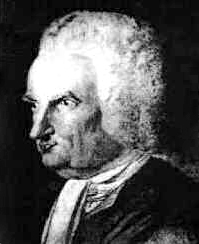
James Burnett, Lord Monboddo was a Scottish judge, scholar of linguistic evolution, philosopher and deist. He is most famous today as a founder of modern comparative historical linguistics. In 1767 he became a judge in the Court of Session.

The Advocates Library, founded in 1682, is the law library of the Faculty of Advocates, in Edinburgh. It served as the national deposit library of Scotland until 1925, at which time through an act of Parliament, the National Library of Scotland Act 1925, the National Library of Scotland was created. All the non-legal collections were transferred to the National Library. Today, it alone of the Scottish libraries still holds the privilege of receiving a copy of every law book entered at Stationers' Hall.
John Ferguson McLennan FRSE LLD, was a Scottish advocate, social anthropologist and ethnologist.
Essays, Moral, Political, and Literary (1758) is a two-volume compilation of essays by David Hume. Part I includes the essays from Essays, Moral and Political, plus two essays from Four Dissertations. The content of this part largely covers political and aesthetic issues. Part II includes the essays from Political Discourses, most of which develop economic themes. The total two-part collection appeared within a larger collection of Hume's writings titled Essays and Treatises on Several Subjects. This was a collaborative publication with the important Scottish bookseller Alexander Kincaid, with whom the bookseller Andrew Millar had a lucrative but sometimes difficult relationship.

Fania Oz-Salzberger is an Israeli historian and writer, Professor Emerita of history at the University of Haifa School of Law and the Haifa Center for German and European Studies (HCGES).
Events from the year 1767 in Scotland.
Duncan Forbes MC was a Scottish historian. He was a Reader in the History of Political Thought at the University of Cambridge.
Alexander Kincaid (1710–1777) was an 18th-century Scottish printer and publisher who served as Lord Provost of Edinburgh 1776/77.

The Virtue of Nationalism is a 2018 book by Israeli-American political theorist Yoram Hazony.
